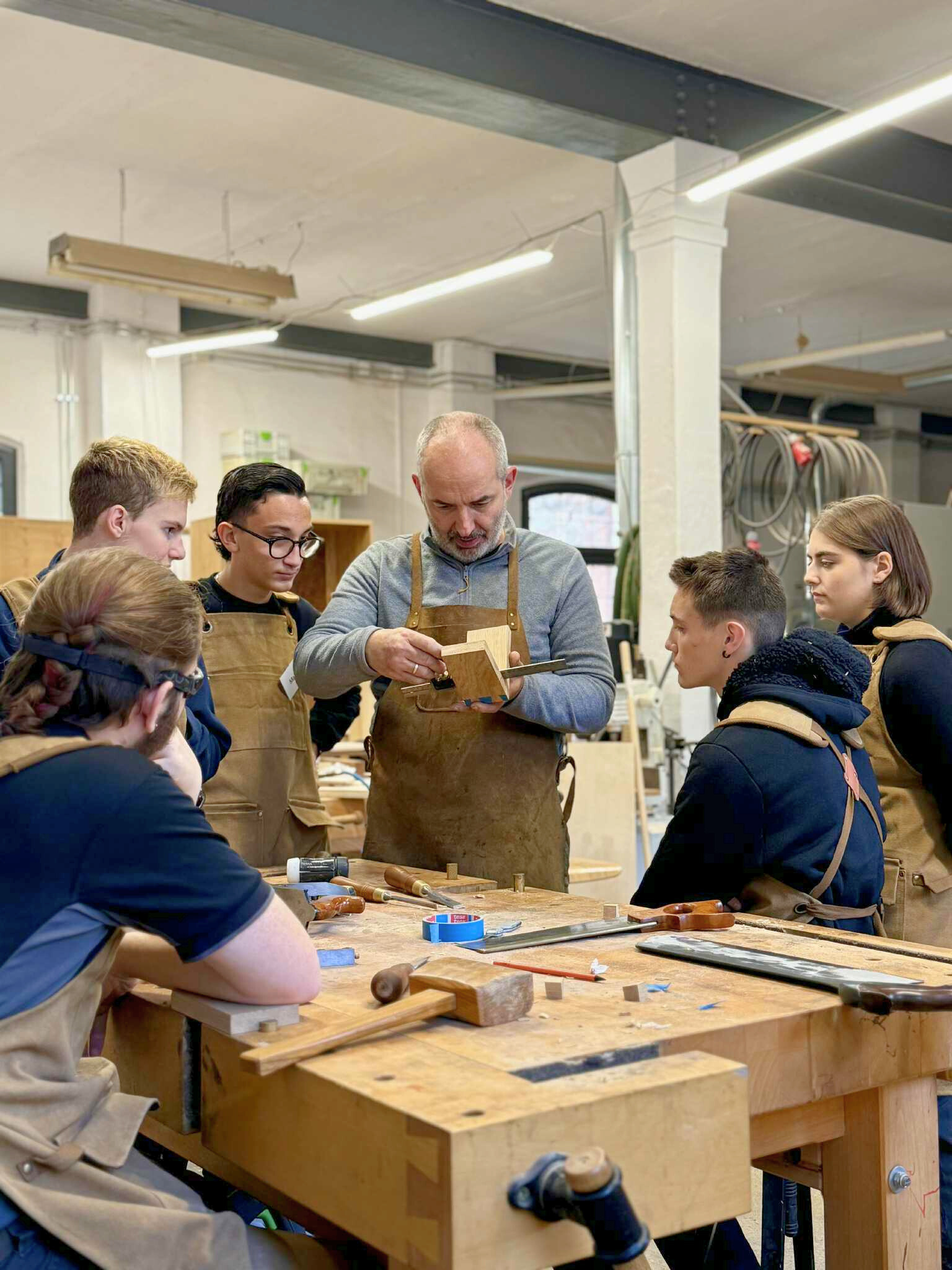The organization Les Compagnons du Devoir et du Tour de France is one of Europe’s most remarkable craft institutions. Founded in the Middle Ages, it continues to uphold the timeless belief that a person is shaped through work, community, and travel.
Craftsmanship as a way of life
Les Compagnons du Devoir is not a typical school – it is a living community of masters and apprentices, united by a shared ethos of excellence, respect for materials, and the conviction that craftsmanship is a form of personal growth. Their guiding motto, “Neither without a master nor without an apprentice,” emphasizes the mutual exchange between generations of craftspeople.
The Tour de France – learning through travel
The signature element of their education is the Tour de France – a traditional apprenticeship journey.
Young artisans, known as compagnons itinérants, travel for several years across France and abroad, working in different workshops and learning directly from experienced masters. Each stage brings new skills, perspectives, and regional traditions – but above all, it teaches humility, patience, and collaboration.
Education and crafts
Today, Les Compagnons du Devoir offers training in over 30 crafts, including woodworking, carpentry, stonemasonry, metalwork, leathercraft, pastry, and baking. Education combines hands-on practice and theory, covering geometry, design, project management, and the culture of work. Apprentices live in Maisons des Compagnons – community houses that are both workshops and shared homes for study and exchange.
Values and spirit
At the heart of the organization lies solidarity among craftspeople. Senior members mentor the younger ones, ensuring that knowledge and skill are passed down. Each apprentice concludes their journey with a chef-d’œuvre – a masterpiece representing technical excellence and artistic sensitivity.
Les Compagnons du Devoir today
The organization now includes thousands of members and partners worldwide – in France, Belgium, Canada, Japan and Switzerland. In a rapidly changing world, Les Compagnons du Devoir prove that traditional craftsmanship remains a foundation for creativity, innovation, and human connection.
🪚 Craft beyond borders
Through programs such as Erasmus+, students travel across Europe, including to Bensari Workshop in Wrocław, Poland, where they refine their woodworking skills and participate in daily training sessions.
These exchanges represent not just education, but a meeting of cultures and philosophies of making – the French master-apprentice tradition and the Polish approach rooted in precision and respect for wood.
In Poland, there is no equivalent of this educational model, and I deeply regret that. We have many talented young people who would benefit enormously from a form of learning based on practice, mentorship, and international exchange. I believe that one day, Poland will have a system that allows craftspeople to learn as the Compagnons do – through work, community, and mutual respect.
🔗 Learn more: www.compagnons-du-devoir.com
FAQ – Frequently Asked Questions about Les Compagnons du Devoir
1. Do Les Compagnons du Devoir have a branch in Poland?
No, the organization does not have a permanent branch or Maison des Compagnons in Poland.
However, Poland is included in the network of international training destinations.
Groups of apprentices visit Polish workshops – including Bensari Workshop in Wrocław – as part of Erasmus+ mobility programs, where they gain hands-on experience and exchange knowledge with local craftspeople.
International placements are coordinated by the Mobilité Internationale (International Mobility Department) of Les Compagnons du Devoir.
2. How does their system differ from the Polish craft education model?
The Compagnons system is based on learning through travel and practice – apprentices move from one workshop to another, working under various masters.
In Poland, there is no equivalent program combining practice, theory, community life, and international exchange.
This combination of mobility, mentorship, and craftsmanship excellence makes the French model unique.
3. How can someone join Les Compagnons du Devoir?
Applicants must be at least 15–16 years old and choose one of over 30 crafts (woodworking, carpentry, stonemasonry, metalwork, pastry, baking, leathercraft, etc.).
Applications are handled in France and typically begin with an apprenticeship period, followed by participation in the Tour de France training route.
4. How long does the training last?
The complete training path usually takes 5 to 7 years, depending on the craft.
It combines hands-on learning in workshops with community life in a Maison des Compagnons.
Each apprentice finishes their journey by creating a chef-d’œuvre – a masterpiece representing their skills and artistic maturity.
5. Do Les Compagnons du Devoir work internationally?
Yes. The organization maintains strong international partnerships with workshops, schools, and companies across Europe, Canada, Japan, and Africa.
Through programs such as Erasmus+, young artisans complete professional internships abroad, expanding their skills and cultural understanding.
6. What values define Les Compagnons du Devoir?
Their motto is “Servir sans s’asservir, ni se servir” – “To serve without enslaving oneself or exploiting others.”
It reflects the values of service, humility, and respect – a philosophy that treats craftsmanship as both a professional path and a moral commitment.


